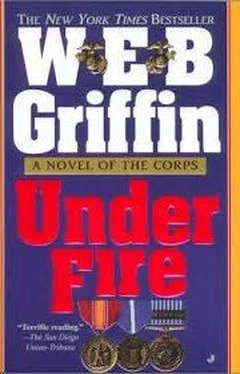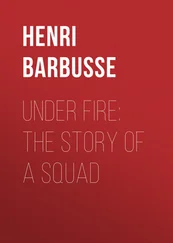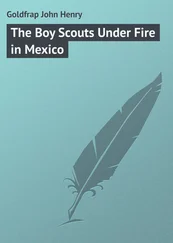Griffin W.E.B. - The Corps 09 - Under Fire
Здесь есть возможность читать онлайн «Griffin W.E.B. - The Corps 09 - Under Fire» весь текст электронной книги совершенно бесплатно (целиком полную версию без сокращений). В некоторых случаях можно слушать аудио, скачать через торрент в формате fb2 и присутствует краткое содержание. Год выпуска: 0101, Жанр: Старинная литература, на английском языке. Описание произведения, (предисловие) а так же отзывы посетителей доступны на портале библиотеки ЛибКат.
- Название:The Corps 09 - Under Fire
- Автор:
- Жанр:
- Год:0101
- ISBN:нет данных
- Рейтинг книги:5 / 5. Голосов: 1
-
Избранное:Добавить в избранное
- Отзывы:
-
Ваша оценка:
- 100
- 1
- 2
- 3
- 4
- 5
The Corps 09 - Under Fire: краткое содержание, описание и аннотация
Предлагаем к чтению аннотацию, описание, краткое содержание или предисловие (зависит от того, что написал сам автор книги «The Corps 09 - Under Fire»). Если вы не нашли необходимую информацию о книге — напишите в комментариях, мы постараемся отыскать её.
The Corps 09 - Under Fire — читать онлайн бесплатно полную книгу (весь текст) целиком
Ниже представлен текст книги, разбитый по страницам. Система сохранения места последней прочитанной страницы, позволяет с удобством читать онлайн бесплатно книгу «The Corps 09 - Under Fire», без необходимости каждый раз заново искать на чём Вы остановились. Поставьте закладку, и сможете в любой момент перейти на страницу, на которой закончили чтение.
Интервал:
Закладка:
"You look as if you have a question, Mr. Taylor," Picker-ing said.
"Ran aground, sir? Or got caught by the tides?" Taylor asked.
"Caught by the tides," Pickering said. "The effect is the same. The question is, how is MacArthur's invasion fleet going to deal with Inchon's infamous tidal mudflats?"
"Let's start with that," Howe said. "What mudflats? What are we talking about? Show me. Charley, have we got that map?"
Master Sergeant Rogers took a map from his briefcase and laid it on the table.
"You tell us, Taylor," Howe ordered. "Remembering that you and General Pickering are the only sailors in the room. Keep it simple."
"Yes, sir," Taylor said.
He took a lead pencil from his pocket and used it as a pointer.
"Here's Seoul," he said. "And here's Inchon. This is the Yellow Sea. The channel into Inchon from the Yellow Sea-it's called the Flying Fish Channel-starts here, about thirty air miles from Inchon, at this group of little is-lands, called the Tokchok. There's a lighthouse there on a little island called Samni.
"Flying Fish meanders along through here. The distance by water is about forty-five nautical miles from the light-house to Inchon."
"And that's the only way you can get into Inchon?" Howe asked.
"Yes, sir. That's one of the problems the invasion fleet is going to face, moving forty-five miles, and moving slow- the channel twists and turns, and in some parts you have to move at steerage speed-"
"Which is?" Howe asked.
"The slowest speed at which you have steering ability," Pickering answered for him. "And the channel is not very wide; it'll mean moving the ships most of the way in a col-umn."
"And that means, sir," Taylor said, "the chances of sur-prising anyone at Inchon are pretty slim."
"Just for openers, it seems like a lousy place to stage an amphibious invasion," Howe said.
"And we haven't even touched on the tides yet," Picker-ing said.
`Tell me about tides," Howe ordered, "in very simple terms."
"You know, sir, that tides are cyclic?" Taylor asked.
"Not enough. Tell me," Howe said.
"In the Atlantic Ocean, there're two tides a day-they call that semidiurnal. A tidal day is twenty-four hours and fifty minutes. When the tides are semidiurnal, that means you get high tide at, say, six o'clock in the morning, low tide a little after noon, and another high tide at about six-twenty-five that night, and another low tide six hours and twelve minutes af-ter that.
"In the Pacific, there're both semidiurnal tides and diurnal, which means that you get high tide at six in the morning, low tide twelve hours and twenty five minutes after that, and an-other high tide the next morning at ten minutes to seven."
"And that's what it is at Inchon?"
"Not exactly, sir. What they have at Inchon is mixed tides, which means that sometimes the moon and the sun are both acting on the water at the same time. And what that means is that the tides are huge. At Inchon, high tide is sometimes thirty feet above normal sea level, and at low six feet below normal. That means a difference of thirty-six feet. That's at the high end of the cycle."
"What does that mean?" Howe asked. "High end of the cycle?"
"There's a monthly cycle to tides, twenty-eight days, like the lunar cycle," Taylor explained. "At the high end of the cycle, at Inchon, high tide is sometimes thirty feet above sea level, and low, six feet below. At the low end of the cycle, high tide is maybe twenty feet above normal, and maybe four feet above at low tide." Taylor paused. "This is twice a day, you understand?"
"You may have to explain it all over again, but go on, what does this mean?"
"Sir, it means that at low tide, all these areas here, from the mainland shore, and around the islands, don't have any water over them...."
"Mudflats, Ralph, miles and miles of mud," Pickering said.
"Which means," Taylor explained, "that the invasion would have to take place at high tide at the high end of the monthly cycle. Maybe a day, either way, but no more than a day."
"I don't understand that," Howe said.
"You need the highest tide you can get, to get the ships through the channel into Inchon, and then get them out again," Pickering said. "And you have the highest tides only on one day a month."
"Jesus!" Howe said.
"Even then, there's no way that I can see that they can get every vessel in and out, sir," Taylor said. "Maybe they can get one or two attack transports in there, unload them, and get them out on one tide, but there're going to be LSTs and everything else stuck in the mud."
"I agree," Pickering said. "Stuck until the tide comes in again and refloats them."
"When do we get a high tide? Is that the correct term?" Howe asked.
"August eighteen is the next one, sir, and the one after that is 15 September. That's what they're shooting for, 15 September."
Howe looked at Pickering.
"So `when I will land' at Inchon is September fifteenth?"
"It would appear to be," Pickering said.
"Is there more bad news, Mr. Taylor, about this brilliant invasion idea? Or have I heard it all?"
"Not quite, sir," Taylor said.
"Jesus! What else can go wrong?"
"Sir, if you look here," Taylor said, pointing at the map. "You see this little island here, Paega-do? It's about five miles off the mainland. The water between it and the main-land is fifteen, sometimes twenty, feet deep at high tide. At low tide, it's a mudflat. From the west side of Paega-do, it's about five miles to Yonghung-do. The Flying Fish Channel, half a mile wide, runs north-south through there, mostly right in the middle. That's the only place where, at high tide, the channel is deep enough for the attack transports."
"Okay," Howe said after he'd studied the map a moment.
"The channel there is within artillery range of guns on either island," Taylor finished.
"Which means they'd have to be taken out before the at-tack transports-or anything else-could use the chan-nel?" Pickering asked, but it was really a statement rather than a question.
"And taking them out would be a pretty good signal of our intentions, wouldn't it?" Howe said, thoughtfully.
"Yonghung-do, Paega-do, and all these islands east of there are held by the North Koreans," Taylor said, pointing.
"And west of there?" McCoy asked. It was the first ques-tion he had asked.
"The South Korean national police holds them," Taylor said. "I don't mean..."
"You said `police'?" General Howe asked.
"Yes, sir. They hold the major islands, sir, is what I mean. They don't have people on every island."
"The front, the battle line, is way down the peninsula, al-most to Pusan," Howe said. "Why don't the North Koreans at least try to run the South Koreans off those islands?"
"I can only guess, sir, that they don't consider them a major threat; that they're waiting until they take Pusan. Once that happens, they'll have the means to clean up-"
"Hey," McCoy said. "They're not going to take Pusan."
"They're not?" Taylor asked, dubiously.
"The Marines have landed, haven't you heard?"
"You really think the Marines can hold Pusan, McCoy?" General Howe asked. "Or are you just parroting the official Marine Corps line?"
"Not by themselves, sir, I didn't mean to suggest that. But if they can help the Army hold on to it a little longer, until the Army can get some more troops in there... The last prisoners Ernie and I talked to not only looked beat, but admitted they were running out of food, ammunition- everything. That's a long supply line they're running."
"Why should the Marines do any better than the Army has? It looks to me like the more men the Army sends to Korea, the further Eighth Army has to retreat."
"Sir, most of the Provisional Brigade officers and non-coms have combat experience in the Second War. And-at least down to company level-they've trained together."
Читать дальшеИнтервал:
Закладка:
Похожие книги на «The Corps 09 - Under Fire»
Представляем Вашему вниманию похожие книги на «The Corps 09 - Under Fire» списком для выбора. Мы отобрали схожую по названию и смыслу литературу в надежде предоставить читателям больше вариантов отыскать новые, интересные, ещё непрочитанные произведения.
Обсуждение, отзывы о книге «The Corps 09 - Under Fire» и просто собственные мнения читателей. Оставьте ваши комментарии, напишите, что Вы думаете о произведении, его смысле или главных героях. Укажите что конкретно понравилось, а что нет, и почему Вы так считаете.










